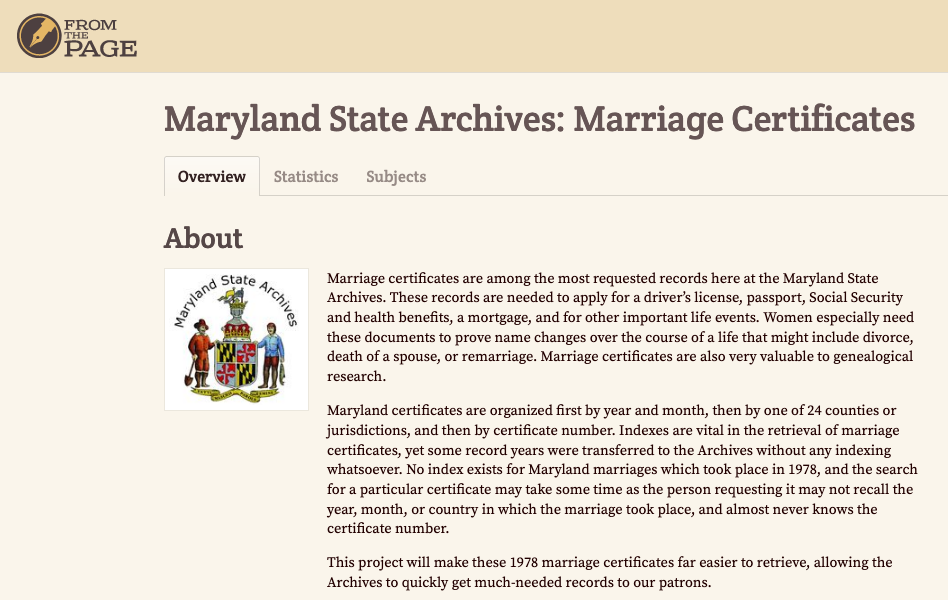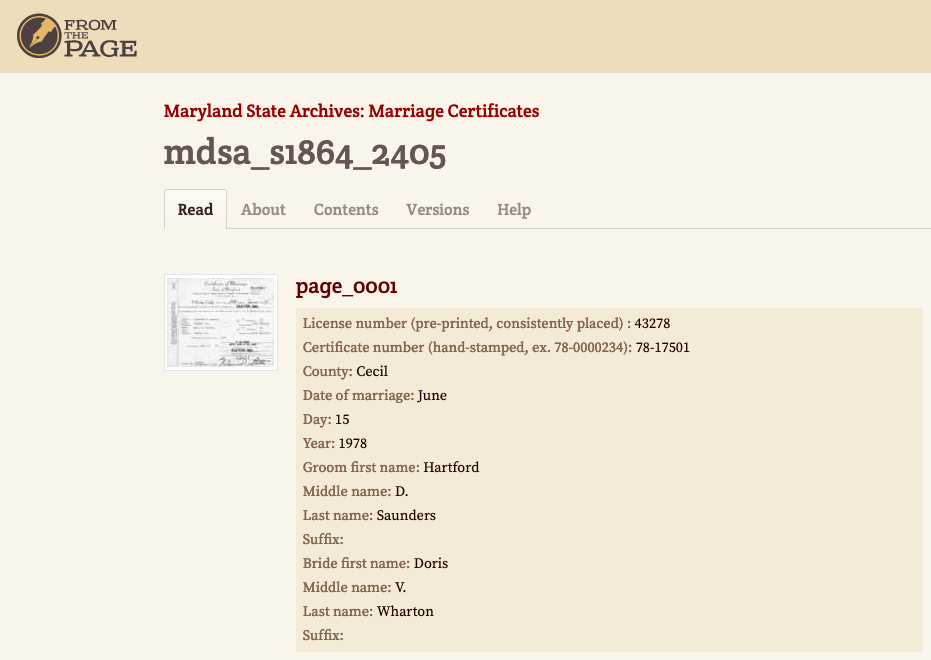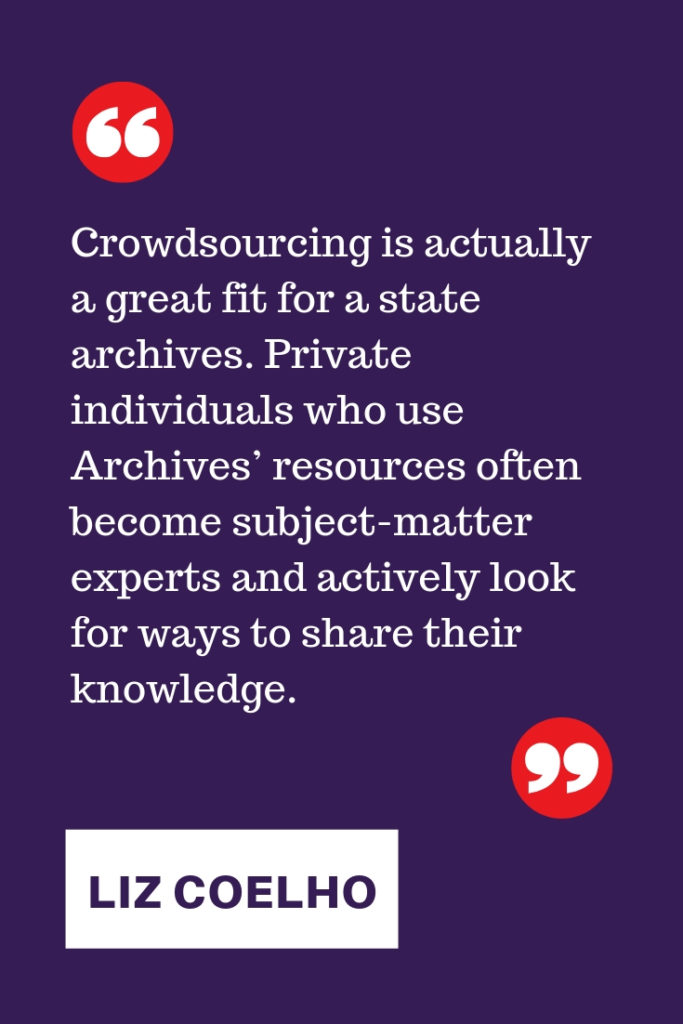Liz Coelho is the Executive Associate for Projects at the Maryland State Archives. She kindly agreed to be interviewed by Sara Brumfield about the Archives’ use of FromThePage.
Please tell us about your project
The Maryland State Archives currently has one fielded-form project posted on FromThePage, a collection of marriage certificates from 1978. No index exists for these records--over 50,000 certificates--which makes finding any given record an act of manual labor as the paper copy must be searched for by hand. Add to that the difficulty of searching when the patron doesn’t remember the date of their marriage but desperately needs the certificate to apply for social security benefits, a passport, or a driver’s license renewal. Having a digitized, searchable index of these records will make an enormous difference in getting this important document into the hands of the people who need them to conduct the daily business of life.

How does your project differ from the manuscript-based projects on FromThePage?
The fielded-form transcription format on FromThePage has made this project possible. The Council of State Archivists organization worked with you and Ben on developing a fielded form in addition to the manuscript pane interface that was already in use. This allowed volunteers to quickly transcribe data that had been typed onto a standard form. Marriage certificates contain the same information on every record: the names of the parties, the date of the marriage, the county where the marriage took place and, most importantly, the certificate number. Once downloaded from FromThePage, the information entered into each field will comprise the data sets in a searchable database.
What are the advantages of the fielded form?
By adding a field-based option, FromThePage offered project owners a way to have a very large number of standardized records transcribed in a very cost-effective way. The Archives doesn’t have the staff to assign to a data-entry project of this magnitude, and I know from working as a freelance indexer that the fee-based cost of this project would have been about 50 cents per certificate if we’d had to contract the work out. There simply isn’t the funding for that kind of expense. The fielded-form, along with the desire of the volunteer transcribers to get involved and help create something useful for the benefit of many, has made this project possible.

Who are your volunteers?
!["[Volunteers] are often as dedicated to preserving the historical record as professional archivists." -Liz Coelho](https://content.fromthepage.com/wp-content/uploads/2019/04/40652012293_7c50b5921e_o.jpg)
The volunteers I’ve talked with all seem to share a very professional, results-oriented attitude toward the project. They like the discipline of accurately transcribing a record and then moving forward to the next. Individual volunteers working on our project have transcribed hundreds, and sometimes thousands, of records. I’ve transcribed certificates, and I can definitely say that there’s a lot of satisfaction in watching the green percentage-completed line advance to 100%. When we first started the project we reached out to local genealogical and historical societies. Marriage certificates are not only important legal documents, they’re also rich sources for family research. They contain the bride and groom’s place of residence and place of birth, their prior marital status, where they were married, their age at the time of marriage. So family researchers have a stake in making these records more accessible and are a big part of our volunteer group. Archives staff members have also participated in the review process, the final step before a file is downloaded into our database and considered completed.

How does crowdsourcing fit within a state archives?
Crowdsourcing is actually a great fit for a state archives. Private individuals who use Archives’ resources often become subject-matter experts and actively look for ways to share their knowledge. On any given day in our public Search Room, one knowledgeable patron will lean over to offer advice and perspective to another patron. They come in on their own initiative and transcribe a colonial court ledger that interests them. They visit old graveyards and compile the information found on crumbling tombstones, and then donate their research to the Archives so others can benefit. They’re often as dedicated to preserving the historical record as professional archivists. So crowdsourcing is just an efficient way of reaching out to all these interested people and offering them a specific project for them to consider working on.
